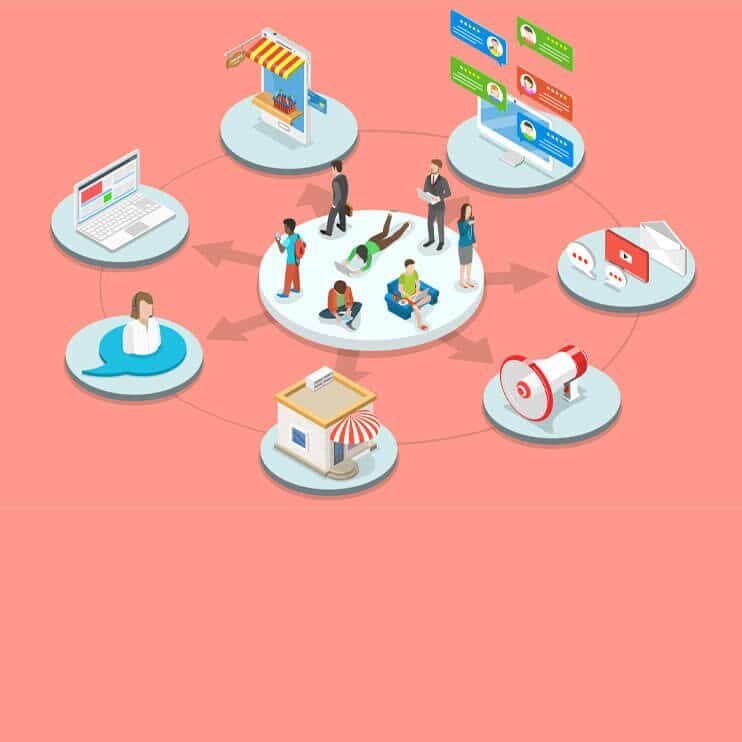An extensive study carried out last year predicted that 53% of companies would be using chatbots by 2020, demonstrating a 136% growth from April 2019 when the information was collected.
With 68% of business-to-business marketers agreeing that delivering a consistent, high-quality customer experience is of extreme importance in today’s marketplace, it’s vital for companies to keep up to date with the latest trends and predictions in the sector for 2020. A lot is set to change, particularly as new and emerging technologies begin to alter, replace and create new job roles.
An extensive study carried out last year predicted that 53% of companies would be using chatbots by 2020, demonstrating a 136% growth from April 2019 when the information was collected. Now that we’ve survived the hype around chatbots, what’s next? It looks like new technologies incorporating AI and audience-based structures will be the next big thing to take the world of customer experience by storm.
Outdated technology
A huge obstacle in delivering exceptional and seamless customer experience nowadays is outdated technology. Quality management is key, and customer experience agents require the fastest and latest technological support in order to satisfy consumers.
If a company chooses not to invest in its digital assets, it sends out the completely wrong message, and the wants and needs of the customer are consequently not considered a priority. Every interaction a customer has with a business shapes their perception of the brand. So, if customers aren’t served quickly and effectively due to inefficient processes and operations, time is wasted, buyers aren’t happy and profits are lost.
Companies looking to overcome this barrier need to look at modernising their technology stacks and embarking on a digital transformation journey. However, this is more than just replacing existing tech; it involves transforming the way the entire organisation designs, plans, operates and delivers. It is a complete mindshift.
AI is here to stay
As AI technologies increase in complexity, so does their popularity. With their ability to reduce costs and provide impressive personalisation and customisation, they transform daunting feats into bearable tasks.
According to Gartner, this year is expected to see 85% of customer relations taking place without human interaction. This is where AI steals the show. Consumers long to feel as if they’re talking to a human – to somebody just like them. AI offers exactly this by delivering an intelligent, informed and personable customer experience, making customer service feel more natural to buyers.
On the more technical side of things, AI aids in data unification and provides accurate and high-impact and real-time insights. For example, leading beauty brand Sephora offers the Visual Artists app through which users can virtually try on cosmetic products to match their skin tone before buying. The app allows users to access the brand’s entire inventory of products at the click of a button, suggesting personalised recommendations and making real-time offers.
Focus on audience-based structures
Forrester predicts that in 2020 there will be a 30% increase in the number of organisations that decide to shift towards audience-based structures. This particular organisational change is a marathon and not a sprint. As Forrester points out, the problem is not mindset, philosophy or vision, but rather a reluctance to embrace structural change, which requires a more gradual approach.
For those companies that are one step ahead of the game, a structural transformation facilitates the convergence of multiple platforms in order to increase fluidity between the company and consumer interactions. Organisations will need to blur the lines between departments, such as Marketing, Sales and Social Media, and streamline channels of communication to deliver customer-defined messages. Overall, this will dramatically increase business efficiency, but it requires implementing an advanced CRM that is able to integrate both tools and functions.
Increasing performance on recurrent business models
Another trend aiming to keep companies competitive is the introduction of recurrent revenue models to businesses which have never implemented these models in the past, such as those organisations that have traditionally operated on a one-sale-at-a-time model.
Software manufacturers are seeing this trend and delivering tech to fulfil this purpose. For the winter of 2020, SugarCRM is releasing its new Renewals Console, unlocking the key to securing lifelong customers with its no-touch, time-aware customer experience platform. This one-of-a-kind CX tool has been flawlessly crafted to enhance the lead funnel, increase revenue and improve first response rates.
Included as a core component of SugarCRM’s specialist service, the new feature removes the need for CRM customisation or third-party integration. Sellers will have rapid access to all the products a customer is subscribed to, all in a clear timeline format spanning from subscription start and end dates. This means agents will be able to factor annual or monthly contracts into quotes at record speed, providing customers with a swift, single and connected experience.
Such future-forward technology offers businesses that all-important competitive edge they need to thrive in today’s constantly evolving digital era.
Survival of the digitally mature
Technology has always played a crucial role in customer experience, but the dawn of the new decade marks a turning point.
Companies will really begin to witness first-hand the impact of integrating new and transformative CX technologies – such as AI and SugarCRM’s Renewals Console – into their businesses.
Although there will always be room for human selling agents in customer service, technology is occupying more space than ever – offering brands the easiest and smoothest communication with buyers.
redk has over 15 years of experience as technical and consultancy CRM specialists. With expertise in technology strategy and data, we use the best tools to help our company optimise efficiency and profitability. Start the decade on the right foot, and get in touch.










